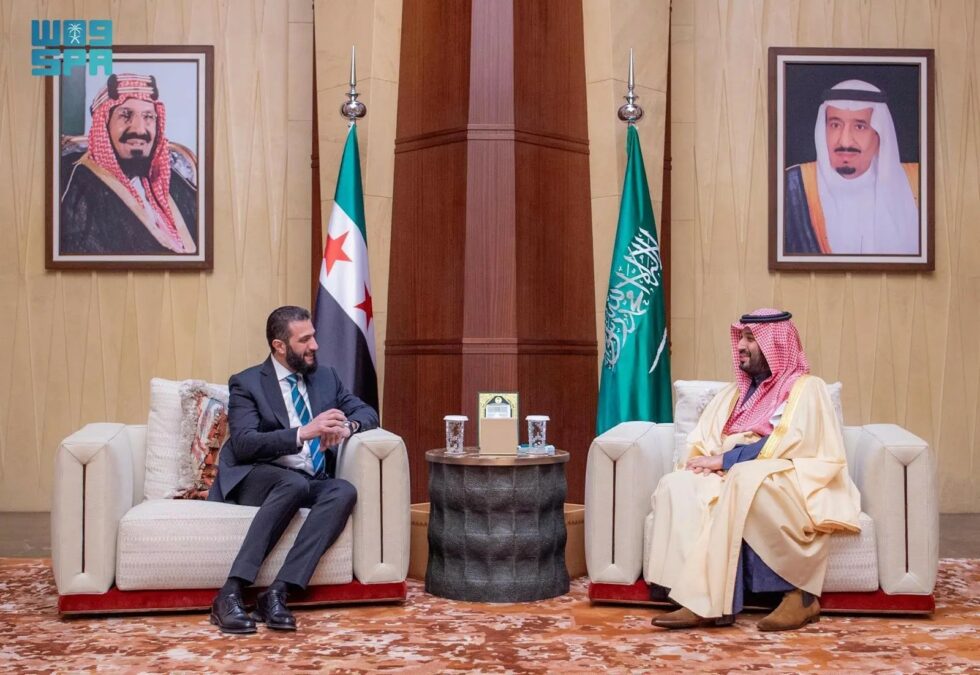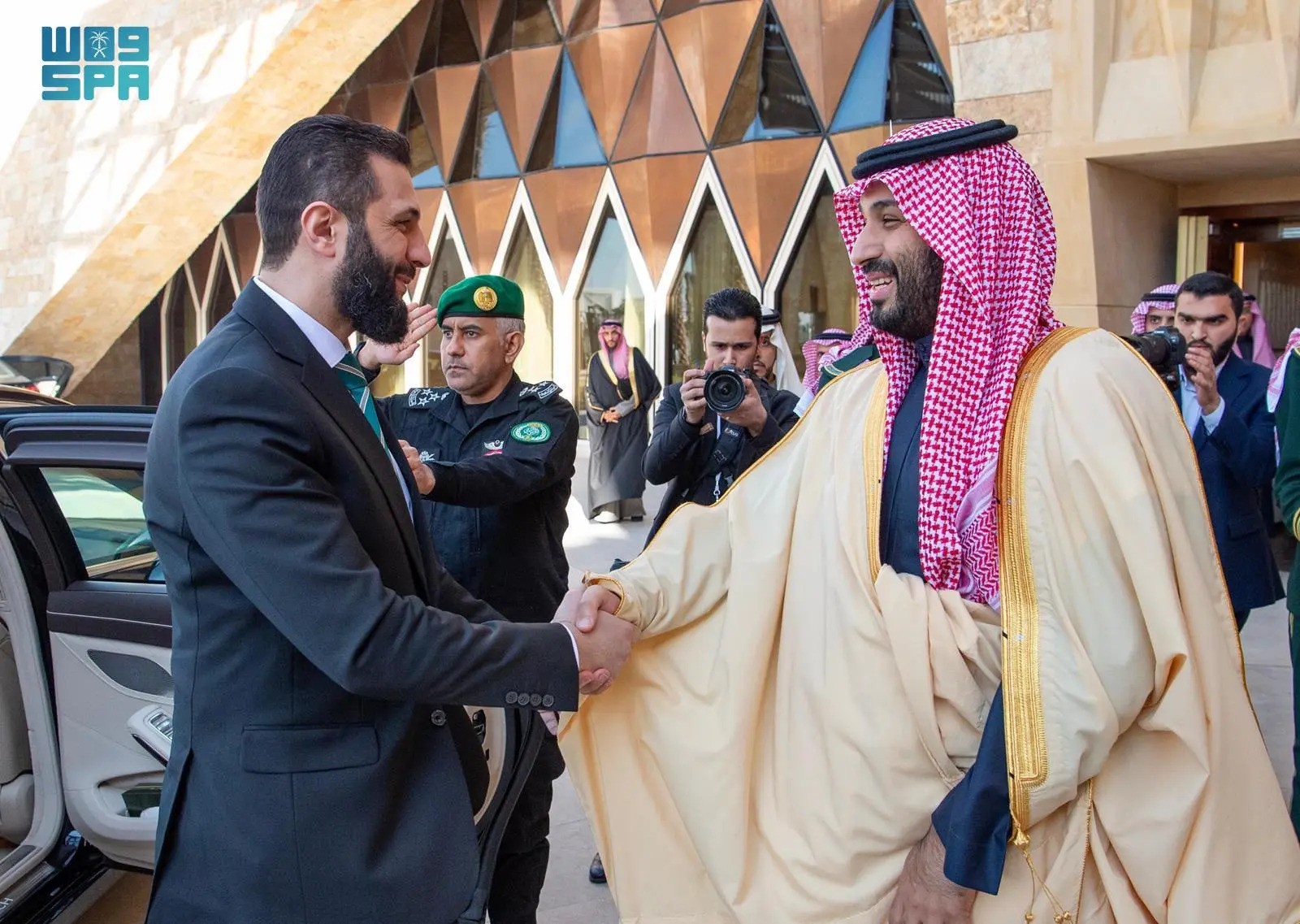Riyadh, Saudi Arabia – Syrian President Ahmed al-Sharaa met with Saudi Crown Prince Mohammed bin Salman (MBS) in Riyadh on Sunday, marking his first official foreign visit since assuming leadership of Syria’s transitional government. The meeting, held at Al-Yamamah Palace, signals a significant shift in Syria’s regional alliances following the overthrow of longtime leader Bashar al-Assad in December.
Al-Sharaa, was received at King Khalid International Airport by Deputy Governor of the Riyadh Region Prince Mohammed bin Abdulrahman bin Abdulaziz before heading to the palace for talks with the crown prince.
At the start of the meeting, the Saudi Crown Prince congratulated al-Sharaa on assuming the presidency, wishing him success in fulfilling “the aspirations of the Syrian people.” In response, al-Sharaa expressed his appreciation for Saudi Arabia’s “genuine desire to support Syria in building its future,” adding that the kingdom “will certainly have a large role in Syria’s future.”
Discussions on Syria’s Reconstruction and Regional Stability
During their talks, both leaders focused on strengthening ties and explored avenues for cooperation in multiple sectors, including energy, technology, education, and health. The meeting also covered ongoing diplomatic efforts to lift Western sanctions on Syria and strategies to ensure long-term security and stability in the war-ravaged nation.
The Saudi delegation included Foreign Minister Prince Faisal bin Farhan, Minister of State and National Security Advisor Dr. Musaed bin Mohammed Al-Aiban, and Saudi Ambassador to Syria Dr. Faisal Al-Majfel. The Syrian side was represented by Foreign Minister Asaad al-Shaibani, Director of the President’s Private Office Abdulrahman Salama, and other senior officials.

Syria’s Shifting Alliances
Al-Sharaa’s decision to visit Riyadh first underscores Syria’s pivot away from Iran, which was a key backer of the Assad regime, and toward closer ties with the Gulf. His administration has been working to establish regional and international legitimacy, and the visit is seen as an effort to strengthen relations with Saudi Arabia, a key power broker in the region.
Saudi Arabia had long been an opponent of Assad, backing rebel factions during Syria’s civil war. However, in recent years, it led efforts to normalize ties with Damascus, culminating in Syria’s readmission to the Arab League in 2023. The new Syrian leadership, however, has distanced itself from Assad’s pro-Iran policies and is actively seeking investment and reconstruction aid from Gulf countries.
Gulf States Increasing Engagement with Syria
Al-Sharaa’s visit follows a series of high-profile diplomatic engagements in recent weeks. Saudi Foreign Minister Prince Faisal bin Farhan traveled to Damascus last month, signaling increased engagement between the two nations.
Meanwhile, Qatar’s Emir Sheikh Tamim bin Hamad Al Thani visited Damascus just days ago, becoming the first Arab leader to do so since Assad’s removal. The visit indicated a growing interest among Gulf states in shaping post-Assad Syria.
Saudi officials have also been in dialogue with the European Union and the United States, advocating for the easing of economic sanctions on Syria. Prince Faisal bin Farhan recently stated that Saudi Arabia is committed to “helping Syria reintegrate into the regional fold and rebuild its institutions.”
A New Chapter for Syria?
Al-Sharaa, who led the opposition in overthrowing Assad on December 8, has positioned himself as a leader of a new, more inclusive Syria. His administration has pledged to protect religious and ethnic minorities and ensure broad representation in governance. However, concerns remain over his past associations with Islamist factions.
Sunday’s meeting in Riyadh reflects Saudi Arabia’s strategic interest in supporting Syria’s new leadership and countering Iranian influence in the region. Al-Sharaa, for his part, appears determined to leverage Gulf support to rebuild Syria’s war-torn economy and gain broader international recognition.








